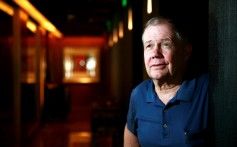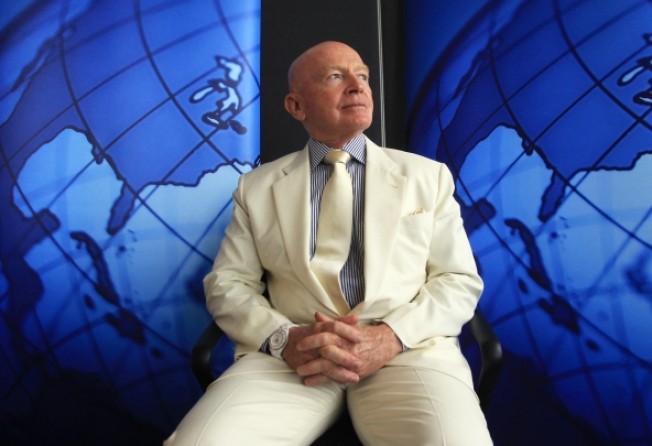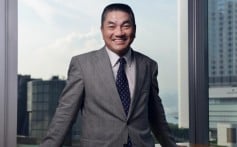
Punting pointers from the pros
It's worked for them, so paying heed to the strategies of four top investors could also do wonders for your own stock portfolio

Many Hongkongers choose to go it alone when making investment decisions. They get tips from friends and they devise their own strategies. Still, it can't hurt to get some input from people who've been doing this professionally for decades.
We asked four highly experienced money men for their best advice. This is what they said:
Jim Rogers, co-founder of the Quantum Fund

"You already know more about the field than any broker or analyst since you spend a lot of time reading about it or following it in the media or working at it. You will see a promising emerging new trend or product long before other investors will. Then follow up by examining the company, its management, its finances, its competitors, everything in the field," Rogers says.
The next step is to wait patiently for the investment to mature. He says people who are deeply connected to the business of their investments will know exactly when to sell, because they will be aware when competitors are overtaking a firm or when their core product loses relevance. At that point you sell and take your profits.
Rogers says this is a dangerous time - people may start thinking investing is easy. "Your ego will get the best of you as you race around seeking your next great investment, but you should do nothing. Close the windows or go to the beach. Forget it for a while until you have calmed down," he says. "Most successful investors do nothing most of the time. They wait patiently while things grow or they just wait until another sure thing comes along."
His advice, then, is to wait patiently for the next perfect investment opportunity. "If investors could make only 25 investments in their lifetimes, they would be very careful about investing," he he says.
"So listen to no one except yourself and your own knowledge. Wait until you yourself see money lying over in the corner just waiting for you to pick it up," he says. "Then you will make money."
Mark Mobius, executive chairman of Templeton Emerging Markets Group
Mark Mobius, who has been investing in emerging markets for more than 25 years, is fond of saying there is only one free lunch in investing, and that is diversification. The idea being that some markets will go up and some will go down, but a well-diversified portfolio can be counted on to gently appreciate over the years.
This is a particularly emerging-markets perspective. Mobius says markets of developed countries are highly integrated and tend to rise and fall together. This is less true of developing markets, where one economy may be spluttering but the next-door nation can be doing fine. There is less correlation and therefore more benefit from diversification. "Unfortunately, many investors have portfolios that invest in only one country - their own. I see this as a big mistake because they are missing out on potential opportunities all over the globe," says Mobius.
Finally, Mobius advises that it can be healthy to take the occasional contrarian bet. He quotes Sir John Templeton on "buying when others are despondently selling, and selling when others are greedily buying".
Cheah Cheng Hye, chairman and co-chief investment officer of Value Partners

Don't try too hard, is his best advice, by which he means, don't over-trade. "I see an upsurge among all investors to buy high and sell low. We call that being whipsawed. You are supposed to buy low and sell high. But there are a distressing number of people doing the opposite," he says.
As a hardened value investor, Cheah knows better than to sell out at the first scent of panic. However, he has succumbed to another trap, which is to sell too early in a rally. In other words, the same discipline that tells him to buy a stock during downturns on the view the market is under-pricing an asset, will also compel him to sell during the boom periods. A share price in such a scenario may easily surpass its "fair" value according to Cheah's models. He will sell, only then to see the share double in value.
He gives the example of BYD, the Shenzhen-headquartered electric carmaker. Cheah bought 13 per cent of the firm's free float when it was "crazy cheap". Then Berkshire Hathaway's Warren Buffett bought into BYD in 2008, and the share price rocketed, leading Cheah to sell out at a handsome profit.
"According to my spreadsheet the stock was fully valued. So imagine my shock when in the next 12 months the stock doubled," Cheah says.
So, keep your nerve when markets tank, and likewise not be so quick to sell when markets soar. "Let your winnings run," he says.
Adam Tejpaul, head of investments at JP Morgan Private Bank Asia
Adam Tejpaul's advice is that investors should not attempt to time markets. To make the point, he pulls out an extraordinary statistic: that if you had invested in the Hang Seng Index over the past 20 years, you would have captured a 8.74 per cent compounded return. However, if you missed the 40 best days for the market, you would have seen a negative 5.7 per cent compounded return.
If you wait on the sidelines for just the right moment to jump into an investment, you might easily miss the handful of trading days on which most of your potential profits are made. The only way to ensure you get those gains is to be continuously invested.
Tejpaul's insight comes from working with wealthy Hongkongers who find themselves with a lot of money when they sell the family business. Such individuals are suddenly faced with the daunting prospect of investing that capital.
So he advises that such people should decide on a plan for investing, settling on matters such as asset allocation and risk levels, and then slowly invest according to this plan year by year.
The benefit of the approach is that it eases people into investing. "Rather than trying to time markets, they should just get invested in a number of things in which they are comfortable," Tejpaul says.